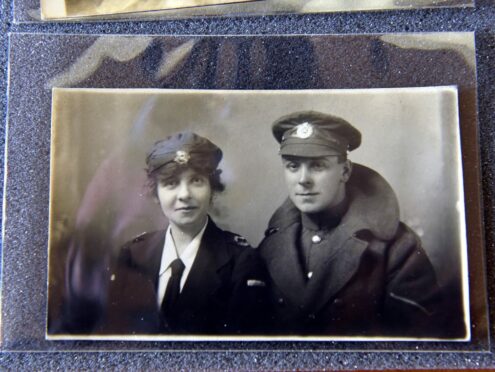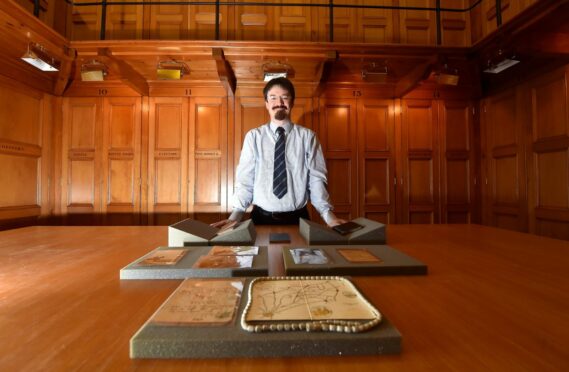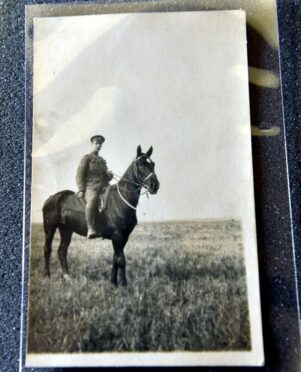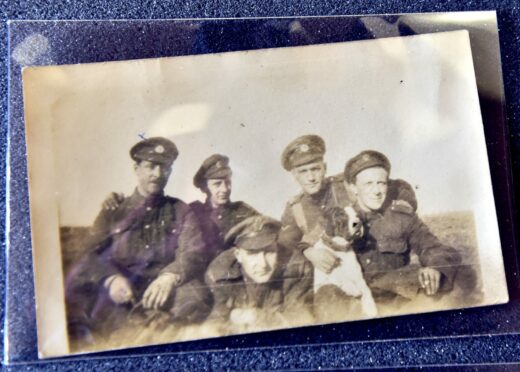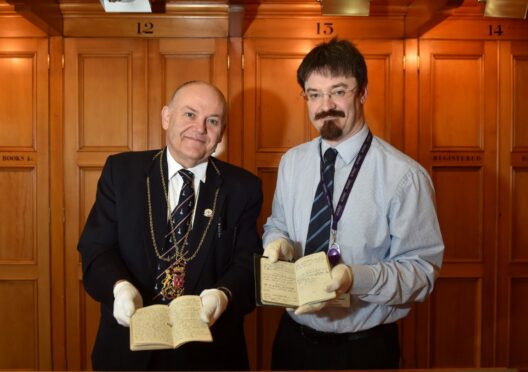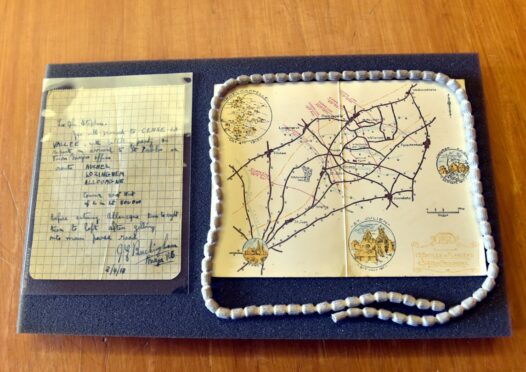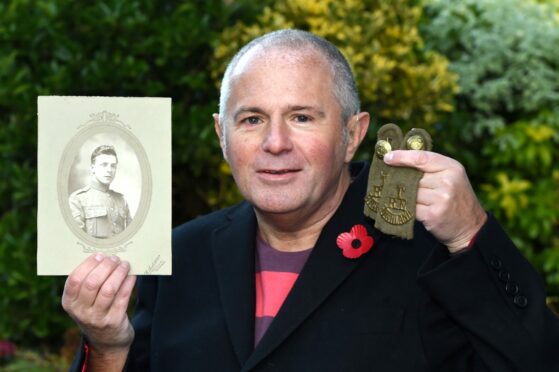An Aberdeenshire soldier’s diaries were moments away from being lost forever when they were rescued from a skip in the south of England.
Robert Stephen’s words have offered a fascinating and unprecedented insight into the First World War since being spared from oblivion.
The Lance Corporal, who was born in Peterhead in 1894, kept a record of the harrowing scenes he witnessed along with a daily account of his life during the conflict.
Our article, originally published in 2018 and revisited today to mark Armistice Day, details:
- The remarkable chance occurrence which led to the diaries being discovered
- And offers exclusive extracts from the diaries documenting the hardships of war and Robert’s delight as the guns finally fell silent
What makes Aberdeenshire soldier’s diaries so significant?
The Sapper with the Highland Division of the Royal Engineers described the “horrible sights” he observed on ravaged battlefields.
And he recounted the “great rejoicing” which occurred when the guns fell silent in 1918.
But they even detail the minutiae of being “crammed in like herrings” alongside his comrades or almost “having his head chewed off” for failing to address an officer correctly.
Historians say the journals offer an almost unheard-of insight into wartime life. It was uncommon for a soldier of Lance Corporal Stephen’s rank to be allowed to keep a diary.
But the three small, sepia-tinted books – along with photographs of his time in combat and military documents – were almost lost forever after being dumped in a skip in Folkstone in Kent.
It is believed that the soldier, who lived in Aberdeen before the war and Glasgow afterwards, died in the south of England in 1980.
Aberdeen City and Aberdeenshire Archives took possession of the diaries after they were plucked from the skip by a curious passerby and handed into a local museum.
Senior archivist, Ruaraidh Wishart, said they were transcribed there before museum staff contacted his team and offered to send them north.
Mr Wishart said: “It seemed there had been a house clearance, and these diaries were headed for the dump, so it is miraculous that we have them.
“We would not know anything about Robert Stephen if not for that, he would be just another name along with so many others who fought.
“He would have kept the diaries in his pocket with his uniform, it is amazing to think that perhaps these went through battle as well.”
Plea for God to ‘bring me safe back’
One entry, from October 1916, details Lance Corporal Stephen’s anxiety as he crossed the English Channel to join the war effort in France.
He wrote: “As I watch the lights of England disappear… I ask God to bring me safe back to all.”
Another, from April 1917, vividly describes the horror of the battlefield.
In February 1918, the soldier described “a rather exciting time at night with Fritz”, as a bomb dropped within 50 yards of his unit and “put the wind up all of us”.
In July 1918, Lance Corporal Stephen’s temperature reached 105 degrees as he battled Spanish Flu – an illness which claimed millions of lives at that time.
By October that year, the soldier was on the mend and reporting that the troop morale was “very fine” as victory approached.
The moment Robert Stephen realised war was over
Other entries mention Lance Corporal Stephen’s bond with his horse, Dolly, who he was with when hostilities concluded at 11am on November 11, 1918.
He wrote: “I overheard the bells as I was going over open country with Dolly.”
In capitals, he added: “HAPPY DAY. THANK GOD.”
The diaries were accompanied by photographs of his unit and their dog, Pedro.
There were also images of Robert and his wife, Bea, and a Christmas card he sent home in 1917 which details the regiment’s accomplishments that year.
Lord Provost of Aberdeen, Barney Crockett, was “profoundly moved” after inspecting the collection.
He said: “It is so fortunate that we have these, especially as we near Remembrance Sunday and give thanks to all the people who went through that ordeal. They all have their own stories.”
Some snippets from Aberdeenshire soldier’s diaries, recounting….
- September 15, 1916 – In Aberdeen, I was picked in a draft for France, and then passed by the doctor, as fit to go.
- October 2, 1916 – As I watched the lights of England disappear in the darkness, all kinds of thoughts passed through my mind. I asked God to bring me back safe to all this. When I went below to sleep, there were men everywhere sleeping. My bed that night was the stairs, with my cap comforter pulled down.
- October 24, 1916 – I nearly had my head chewed off for not sir-ing the officer in charge.
- February 14, 1917 – I am working all day in the trenches. 12th Royal Scots went over the top at 11.15 am, light booming raid. Very heavy bombardment all the time, they took forty German prisoners and did away with five more. Three of our boys were killed and many were wounded.
- April 6, 1917 – A shell from a Long Tom burst not far from our billet, killing three and wounding fifteen men. It was terrible as I saw it all, when I heard the crash I ran out and shall never forget the sight of poor fellows all lying where they had been struck.
- April 9, 1917 – We spent the night in an old dugout, crammed in like herrings in a barrel. It snowed and made things really rotten.
- August 31, 1918 – We took up rations to the colt trench. We went right through Fampoux, a quiet village but in a terrible mess, “knocked to atoms”.
- November 10, 1918 – We had a terrible time with the rain, but there was great excitement about peace, I hope it comes true.
Family given glimpse into life of ‘Uncle Bob’ years after his death
Following the publication of our story in late 2018, Robert Stephen’s descendants were reunited with the notes thought lost for 20 years.
Mr Stephen’s great-nephew, Rob Stephen, has an “astonishing” collection of military mementos Robert left behind.
He was stunned when his eight-year-old son excitedly pointed out a Press and Journal article about their discovery.
After leaving the Army, Robert moved to Glasgow and later relocated to Kent to be nearer his daughter, Ruth.
He died in 1980, and the three small books were handed down to a relative before going missing around the year 2000.
Read more below about Robert Stephen’s descendants and their collection of his military mementoes – including a rusty piece of shrapnel which tore through his torso after a bomb blast…
